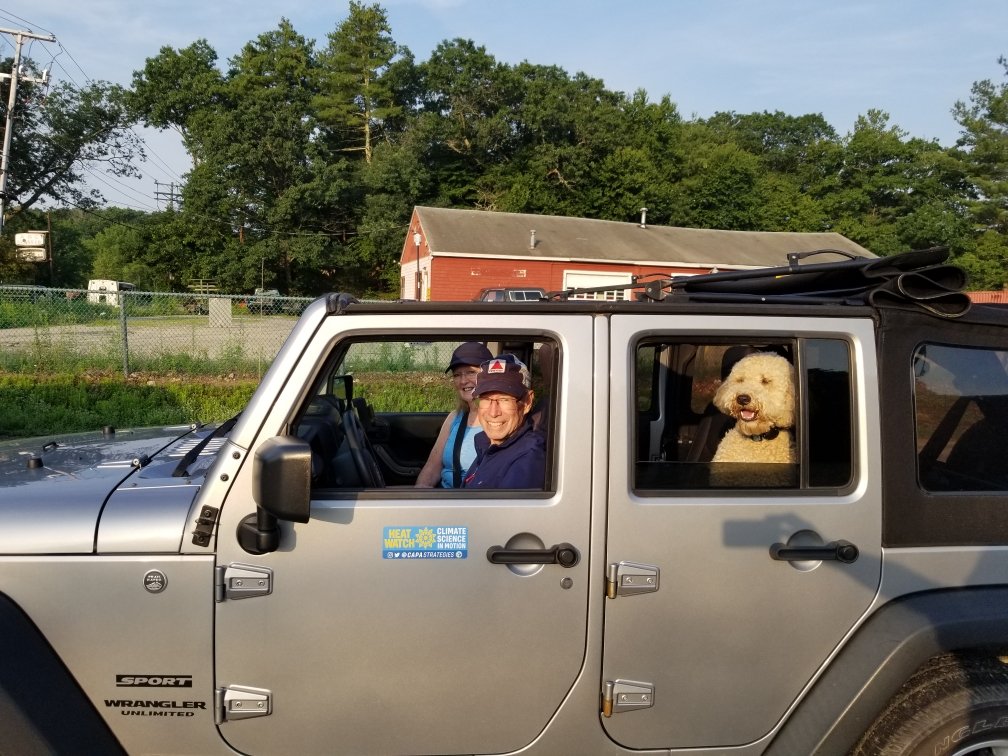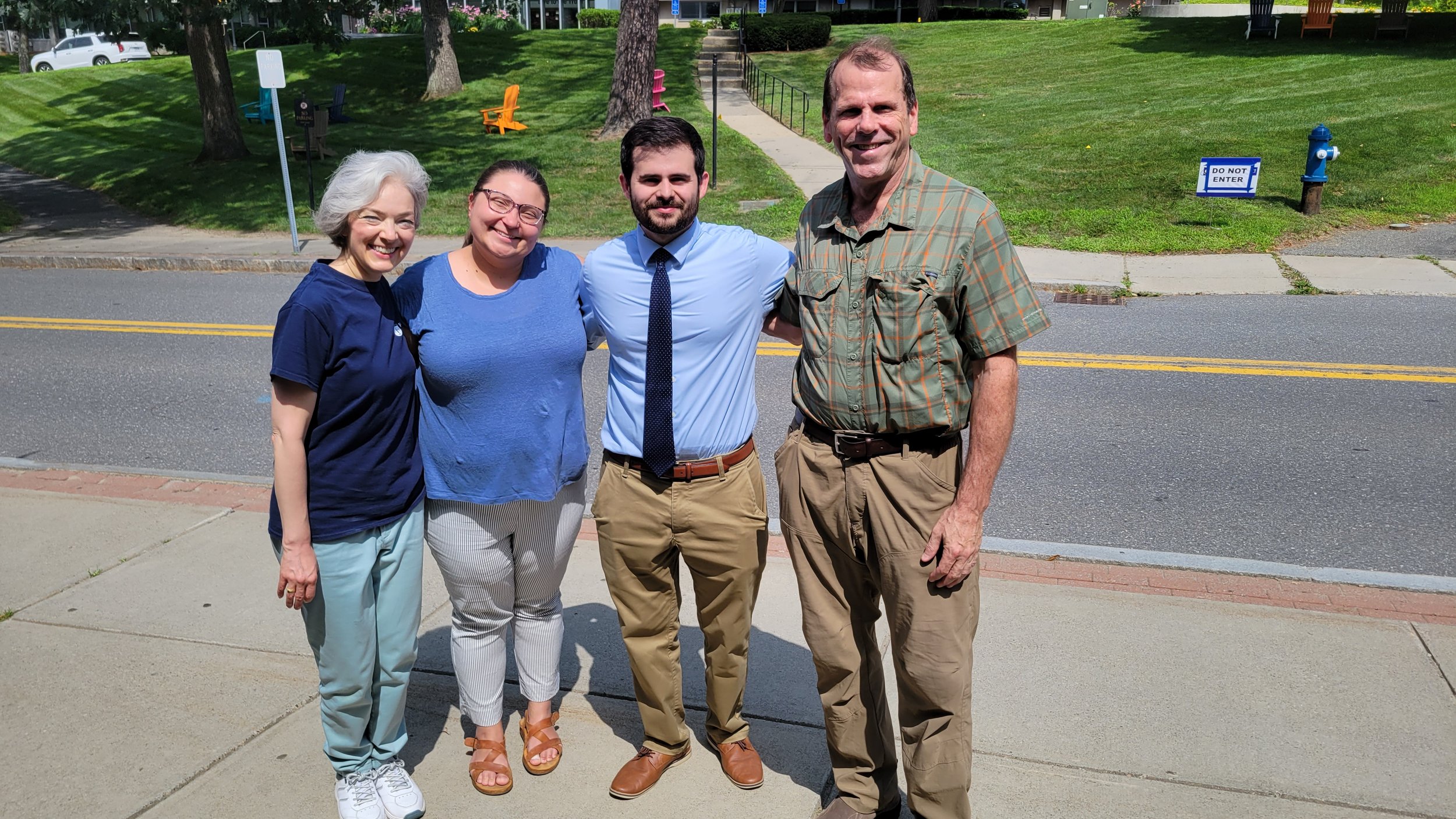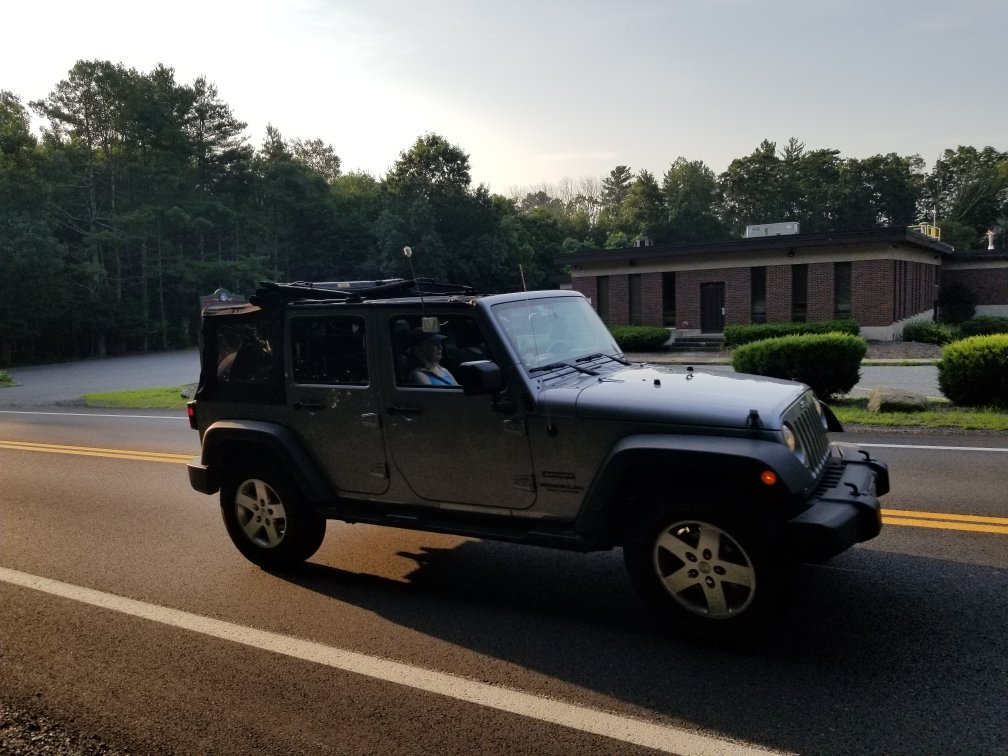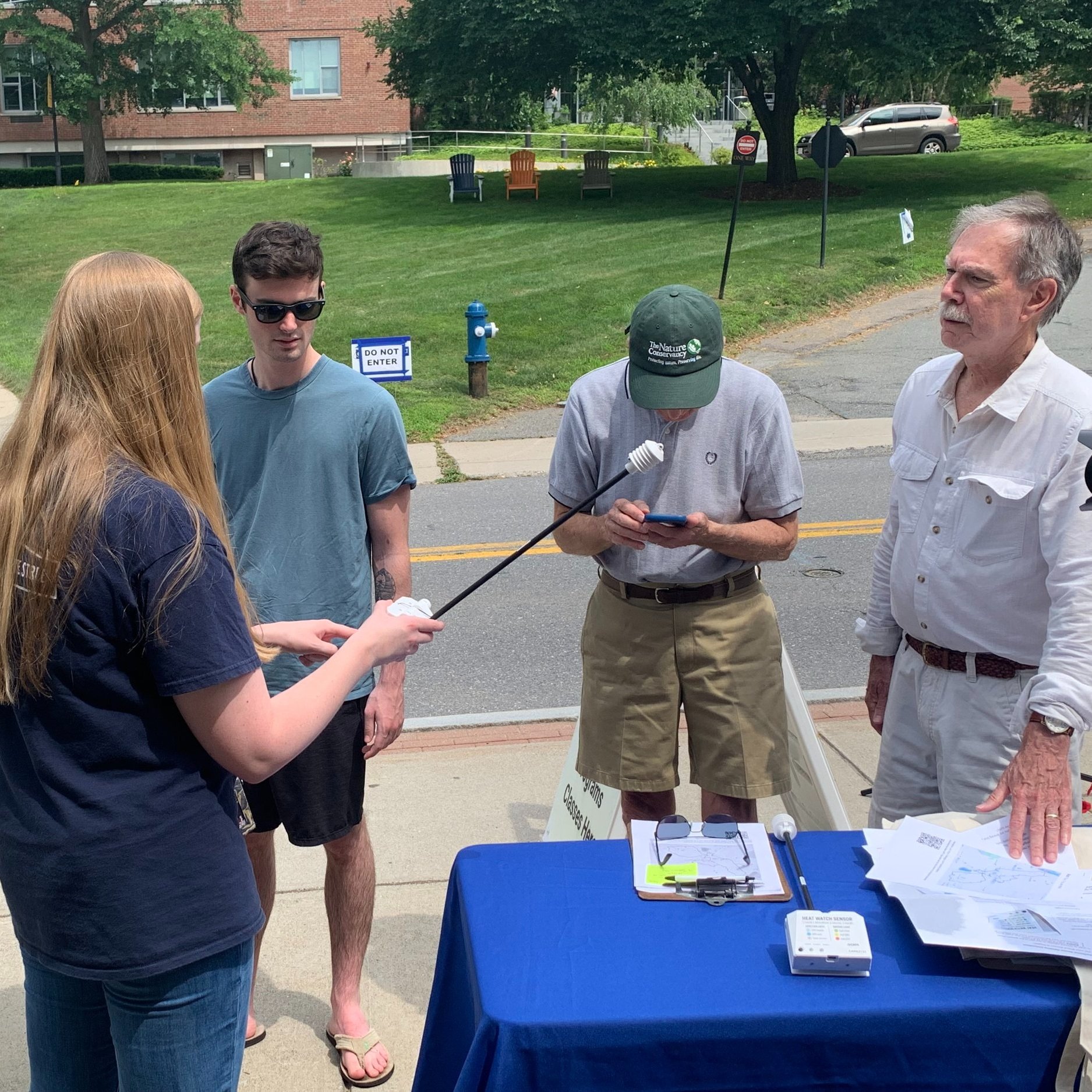2023 Heat Watch Campaign
On July 13, 2023, the McAuliffe Center led a group of local cities and towns including Framingham, Natick, Ashland, and Holliston and partnered with the Metropolitan Area Planning Council (MAPC) to contribute to the 2023 Heat Watch Campaign sponsored by the National Oceanic and Atmospheric Administration (NOAA) in collaboration with Climate Adaptation Planning and Analytics (CAPA Strategies).
Generated by Metropolitan Area Planning Council
Our Volunteers:
Drove a car and navigated a route in high heat areas to collect temperature and humidity data. Their contribution will reveal the distribution of heat across our region, helping local cities and towns plan future relief strategies.
Received necessary equipment and detailed campaign day information.
Attended a one-hour mandatory training session in-person or remotely on June 28, 2023 at 6:00pm.
Collected data on our target campaign date, July 13, 2023, by choosing between three shifts in the morning (6:00-7:00am), afternoon (3:00-4:00pm), and evening (7:00-8:00pm).
In The News
NBC10 Boston (Video): Mapping Extreme Heat in Massachusetts
Metropolitan Area Planning Council: Harnessing Community Science to Better Understand Urban Heat Island Challenges in the MetroWest
Framingham State University: Framingham State’s McAuliffe Center Plays a Leading Role in Regional Climate Adaptation Efforts with Heat Mapping Campaign
Natick Report: Heat Mapping Project in Natick May Reveal Disproportionate Effects of Extreme Heat
Framingham Source: McAuliffe Center-led Heat Mapping Campaign Identifies Urban Heat Islands Where Temperatures Register More than 10 Degrees Hotter Than Greener Areas
About Heat Watch
Over the past six years, NOAA has funded CAPA Heat Watch to support 150+ communities across the United States in mapping their urban heat islands (UHI). CAPA Strategies has developed a process to help cities plan and execute a volunteer-based community science field campaign that builds upon local partnerships, engages residents in a scientific study to map and understand how heat is distributed in their communities, and produces high-quality outputs that have been used in city sustainability plans, public health practices, urban forestry, research projects, and other engagement activities.
Watch this video to learn more about the health risks of extreme heat: How Extreme Heat Overwhelms the Human Body (1:26)








